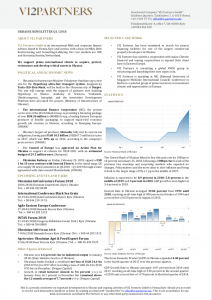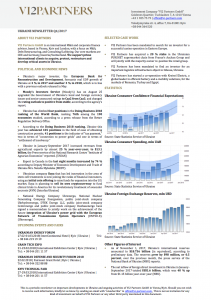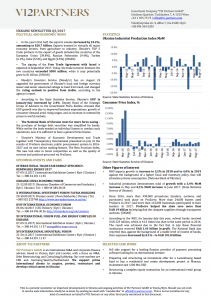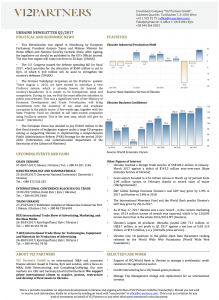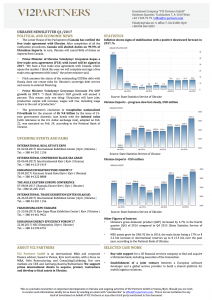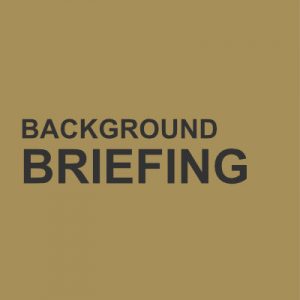TALISCHMARRN: Why the US Strategy in Afghanistan Makes Sense
In Austria, there is a famous national dish called Kaiserschmarrn. The legend says it was one of the Austrian emperor’s most favorite desserts. It is actually a generous pancake, torn apart in thick chunks and then messed up, enriched with roasted plums or apricots and lots of icing sugar. This procedure of tearing something apart and messing it up is called a Schmarrn in German. If you follow media reports and political commentators on the current developments in Afghanistan and the US withdrawal, you are sitting in front of a perfect Talischmarrn. A lot of undigested pieces of unfounded, moralistic, and judgemental views without any coherent line of reasoning. An avalanche of internet memes mocking the US and the exit from Afghanistan. And, historic facts are neglected anyway.
Let us try to clean up with some of the wildest misconceptions of the current situation. Globally and instantly distributed pictures of refugees falling from planes, chaos at Kabul airport, revenge executions and locked-up women as well as the disastrous PR performance of the White House blur our view on the real situation and the effect on global politics. So, let us have a look at the main pieces of the Talischmarrn, where the media got it wrong:
- Wrong #1: The Taliban is acting against the will of the people of Afghanistan.
In reality, multiple polls today and over the past years show, that a majority of Afghans support both the Taliban as leaders and Sharia rules as a basic legal and constitutional framework of running the country. The Taliban has ended a decade-long war and a regime, that was not built on the will of the Afghan people, but on a sponsored kleptocracy, that lived on Western subsidies, massive corruption, and crime. This kleptocracy crumbled at the first signs of resistance and danger. The West has kept alive an illusion of democracy, minority rights, and women equality, that was not congruent with the societal development and cultural foundation of most Afghans and ultimately had to fail. Yet, it has to be seen how stable the Taliban support will be when the country wakes up to dwindling resources and cash streams (up to 80 % of the state budget was based on foreign aid) and famine will hit. - Wrong #2: The US has lost the war in Afghanistan
The US together with its allies has won the war a long time ago by crushing the terrorist structures in Afghanistan, and by sending a clear signal to the World that hosting terrorism ends badly, taking the strongest possible revenge for the 9/11 attacks. The execution of Osama bin Laden was the climax of victory. It should have led to immediate withdrawal from the country. Unfortunately, and as it happened so often in the past in countries from Libya, Syria, Iraq, or Egypt, the West did not stop, but continued with its efforts to install democratic and Western-minded political structures and systems in Afghanistan. In reality, this was an enormous uphill battle against the country’s culture and traditions, proved to be a gigantic waste of taxpayer money, and was horrendously abused by the ruling elite and some Western contractors and advisors for self-enrichment. Hopefully, we understood from the final Afghan episode, that democratic development has to come from within, has to be earned, conquered, fought for by citizens of a country, and cannot be donated or sponsored by foreign forces. - Wrong #3: The US status as a global world power has diminished
Often quoted, still completely wrong. The status of a world power is primarily linked to its economic power (GDP) and its domestic technology skill base. Thanks to the Trump administration, the US has effectively started to take on China’s development as the only credible challenger to US supremacy (both through economic (tariffs) and technological (Huawei ban) measures). The freed cash, hundreds of billions of dollars from Afghanistan (and soon Iraq) adventure will be well deployed for the further development of the US economic and technological basis. Should US relative power diminish, it will only be due to the rise of China, surely not to Afghanistan.
- Wrong #4: The US withdrawal was too hasty and not announced
The withdrawal was overdue as the main objectives of the invasion had been reached long ago, and the remaining forces did not achieve anything else than keeping a ruling elite in power. That the withdrawal was coming was also clear to the World since the Trump administration negotiated the withdrawal deal with the Taliban in Qatar, and it was transparent, that both the Trump and Biden administration wanted to be out of Afghanistan by the twenty-year anniversary of the 9/11 attacks. All the countries involved could have prepared for the withdrawal for more than twelve months, secured critical assets, destroyed sensitive data, and evacuated local supporters from Afghanistan. The lack of preparation is the main failure, not only of the US (partially here the change of administration and Trump’s election fraud chaos can be blamed) but of all allies. My guess is, that while political leaders are joining now cynically the outcry for the suppressed women, translators in danger, and local support staff threatened with execution, in reality, all these leaders and especially in Europe did not want to lead an Afghan refugee discussion in their respective countries prior to the withdrawal. And while there is publicly stated solidarity of state leaderships with Afghan people at risk of being slaughtered, in reality, most governments are not keen at all to take in additional refugees from Afghanistan. - Wrong #5: China and Russia will profit from the situation
Very doubtful. While China and Russia have welcomingly exploited the opportunity of a propaganda blitz and actively try to sow doubt with US Allies in their neighborhoods from Taiwan to the Baltics, reality might bite them back faster than they wish for. Examples of countries that were able to make lasting profits with Afghanistan are rare and it was very comfortable for the rest of the World, that the US and its allies kept radical elements at bay in that region at the cost of living and taxpayers’ money. Given the geographic proximity to their own countries and their domestic issues with radical Islam, both countries will have a very close watch on the further developments in Afghanistan and a potential spread of Taliban or related ideology into their own countries. The US weapons and military equipment arsenal left behind by the US and the dissolving Afghan army should give more headaches to the immediate neighbors than to US citizens. - Wrong #6: Other countries might lose trust in the US
The argument goes, that the US has abandoned the Afghan people, and countries from Taiwan (against China?), and the Baltics (will NATO Article 5 be honored in an attack?) to Ukraine (protection from further Russian land grabs?) will doubt the decisiveness of the US in protecting them from the aggression of bigger neighbors, i.e. China and Russia. Already the basis of the argument is wrong. The US has supported the Afghan people for 20 years, but they have not taken charge themselves. There was no external enemy who wanted to change borders, but a society that decided that life under Taliban rule might be better and more stable than under a corrupt regime and eternal occupation. The situation of all the other mentioned countries is profoundly different. First, they face an external threat, they are ready to defend their homeland against this threat and the US will stand by them – Second, they have no choice but to rely on the US because the alternative is to bow to the bigger neighbor. Turn the question around and it gets more relevant. Will the US lose trust in the leadership of the supported countries? For sure, after all the useless money dumped on the Afghan leadership and infrastructure, the US will apply bigger scrutiny on foreign and military aid and question the sustainability and worthiness of any support to corrupt governments.
- Wrong #7: A new Afghan refugee wave is coming
This is indeed the biggest question mark. For now, the Taliban strategy seems to be more orientated towards keeping all citizens in the country. At the same time, the obvious target countries have all learned their lessons from the 2015 refugee crisis and know better how to protect their borders. Still, once famine and depression occur, this situation might change fast and prove not to be sustainable on both sides of the fence.
In a nutshell: the US might exit even stronger after the withdrawal from Afghanistan, despite all the doomsters and gloomsters of dwindling US dominance as a world power. We do not expect a major political impact in the long term and Western countries should be better prepared today to prevent terror attacks than back in 2001. China and Russia might soon have swallowed a poison pill of more presence/interaction with Afghanistan which can prove dangerous and costly, and the European populations will soon call the solidarity bluff of their leaders should significant refugee streams reappear at their borders. Once, the admittedly chaotic and badly prepared Afghanistan exit is over, and the fifth vaccine-breaking Covid wave has arrived in America and Europe, the topic might disappear from our radars altogether (at least for some years).
Very best
Dr. Marc-Milo Lube
Partner
Smartcom Holding GmbH
